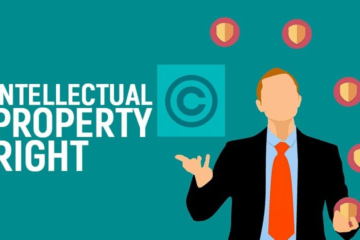
This article is written by Smriti Jha of Lloyd Law College, Greater Noida, an intern under Legal Vidhiya.
Abstract
It is essential to comprehend how trademarks are assigned and licensed in India. For both the licensor and licensee, the marketing and strategic management processes would undoubtedly open up a wide range of expanding vistas in this area. It all depends on how a brand is created and used, which together play a role in boosting marketing efforts across different industries.
In order to eliminate unfair brand rivalry and take into account contemporary business practices, the Trademarks Act of 1999 was revised. The Act is designed to safeguard the rights of a proprietor who invests time, money, and effort into building up the reputation of his or her trademark in the marketplace.
According to the Act, a registered owner may assign or grant a license for the use of his trademark. The goodwill of the participating firm may or may not be employed in the assignment and licensing. To assign or license a trademark, no registration is required.
Introduction
The Trademarks Act of 1999 is meant to defend the rights of a proprietor who invests time, effort, and money in building his trademark’s reputation in the market. The Act also seeks to prevent consumers from being deceived into purchasing a low-quality product simply because it carries the same mark as the proprietor’s or an authorized user’s mark, or a mark that is confusingly similar to the proprietor’s mark.
In compliance with the Act, a registered owner may assign or license his trademark use. The associated company’s goodwill may or may not be employed in the assignment and licensing. A trademark does not have to be registered in order to be assigned or licensed.
Trademark Assignment
The following is the definition of trademark assignment: – A trademark assignment is the transfer of the owner’s right in a trademark to another person. The transferring party is referred to as the assignor, and the receiving party is referred to as the assignee. The Trade Marks Act of 1999 defines “assignment” as a written assignment made by the parties engaged in Section 2(b).
Assignment is the process of transferring ownership rights to another individual.
Who Has the Authority to Assign a Trademark?
Section 37 of the Trademark Act of 1999 defines “trademark assignment.” A trademark assignment, according to the definition, is the transfer of ownership of a trademark and a brand mark. Section 37 of the Trademarks Act of 1999 states that the person registered as the trademark’s proprietor in the register of trademarks has the ability to assign a trademark and receive compensation for doing so. As a result, the owner of a trademark may transfer ownership to another person.
Documents Required for Assignment of Trademark
The trademark registrar must receive the following paperwork in addition to the form TM-P: –
- Agreement for a trademark assignment;
- Certificate for a trademark;
- The assignor’s NOC; and
- Documentation proving the assignor’s and assignee’s identities.[1]
Trademark Licensing
Trademark licensing is merely the license granted by the trademark owner to a third party. A Royalty is paid in exchange for such a license. As an example: – When a brand owner authorizes and permits a third party to use his or her brand/mark in the course of trade for products or services.
Who has the authority to give a trademark license?
The trademark license can only be granted by the owner or holder of the registered trademark. It is important to note that under Indian law, both registered and unregistered property can be transferred. An assignment or a license can be used to transfer a trademark.
to register the trademark license: –
- The agreement must be in writing;
- The trademark owner and the intended user should apply for registration (section 49) with the Trademark Registrar jointly;
- The form to use for the application is TM-U;
- An affidavit signed by the owner of the trademark and authenticated by him or her, detailing the license’s terms and specifying the following: –
- Relationship between the parties
- Duration of the use
- Goods/services for which it is applicable
- The government fee for Each mark will be 4500.[2]
Difference between trademark licensing and trademark assignment
A registered trademark can change owners through a trademark assignment. Whereas, trademark licensing is the transfer of certain rights (In a restricted manner) of a registered trademark while retaining the ownership over the trademark.[3]
Section 48
Registered users
(1) A person other than the registered proprietor of a trademark may be registered as a registered user thereof in respect of any or all of the products or services for which the trademark is registered, subject to the terms of section 49.
(2) For the purposes of section 47 or any other purpose for which such use is material under this Act or any other legislation, the authorized use of a trade mark shall be deemed to be used by the proprietor thereof, and shall not be deemed to be used by a person other than the proprietor.
Section 49
Registration of registered users
As a registered user, you must first register.
(1) When it is proposed that a person be registered as a registered user of a trademark, the registered proprietor and the proposed registered user must jointly apply to the Registrar in writing in the specified way, and each such application must be supported by—
(a) the written agreement, or a legally certified copy thereof, between the registered proprietor and the proposed registered user regarding the permissible use of the trademark; and
(b) an affidavit produced by the registered proprietor or by someone entitled to act on his behalf to the satisfaction of the Registrar,—
( i ) giving particulars of the existing or proposed relationship between the registered proprietor and the proposed registered user, including particulars demonstrating the degree of control by the proprietor over the permitted use that their relationship will confer, and whether it is a term of their relationship that the proposed registered user shall be the sole registered user or that there shall be any other restriction as to persons for whose registration as registered users registration is sought.
(ii) specifying the goods or services for which registration is sought;
(iii) specifying any terms or limits proposed with regard to the features of the goods or services, the mode or place of permissible use, or any other matter;
(iv) specifying whether the permissible use is for a limited time or without a time limit, and if for a limited time, the duration thereof; and
(c) any other documents or other evidence required by the Registrar or specified by law.
2) When the conditions of sub-section (1) are met, the Registrar shall register the proposed registered user for the goods or services with which he is satisfied.
(3) The Registrar shall notify other registered users of the trademark, if any, of the registration of a person as a registered user in the required way.
(4) If asked by the applicant, the Registrar shall take steps to ensure that information provided for the purposes of an application under this section (other than facts put in the register) is not disclosed to competitors in trade.
Section 50
Power of registrar for variation or cancellation of registration as a registered user
(1) A person’s registration as a registered user is made without regard to the provisions of Section 57.
(a) may be modified by the Registrar with regard to the goods or services for which it is effective upon the application in writing made by the registered proprietor of the trademark in the required way;
(b) can be revoked by the Registrar upon written request made by the registered proprietor, registered user, or any other registered user of the trademark in the manner provided;
(c) may be revoked by the Registrar upon the application in writing made by any person in the specified way on any of the grounds listed below, namely:–
(i) that the registered user has used the trademark in a manner that causes or is likely to cause confusion or deception or otherwise violates the agreement under clause (a) of sub-section (1) of section 49;
(ii) that the registered user or the proprietor misrepresented or omitted certain information relevant to the registration application that, if accurately represented or disclosed, would not have supported the registered user’s registration;
(iii) that after the date of registration, circumstances have changed in a way that would not have justified the registered user’s registration at the time of the application for cancellation;
(iv) that the registration shouldn’t have been made considering the applicant’s rights derived from a contract whose fulfillment he is interested in;
(d) may be revoked by the Registrar at any time, either on his own initiative or in response to a written request made in the prescribed manner by any person, on the grounds that any provision relating to the quality of the goods or services for which the trade mark is to be used in the registration agreement between the registered proprietor and the registered user is either not being enforced or is not being complied with;
(e) In regards to any goods or services for which the trademark is no longer registered, the Registrar may cancel the registration.
(2) For each application made pursuant to this section, the Registrar shall give notice to the registered proprietor and each registered user of the trademark who is not the applicant in the manner specified by this section.
(3) If necessary, the following steps may be taken to cancel a registration:
With the caveat that the registered proprietor must have a reasonable opportunity to be heard before registration can be cancelled.
Section 51 of the Trade Marks Act 1999
Registration authority to request information on agreements pertaining to registered users
The Registrar has the authority to request information about agreements pertaining to registered users.
(1) The Registrar may, at any time while the registered user’s registration is active, demand the registered proprietor to attest to him in writing within one month that the agreement filed pursuant to clause
Section 49’s sub-section (1), clause (a), is still in effect.
(2) The registered user ceases to be the registered user on the day immediately following the expiration of the specified time, and the Registrar shall notify you of this. This occurs if the registered proprietor fails to provide the confirmation within one month as required under subsection (1).
Right of registered user to file a lawsuit against infringement under Section 52 of the Trade Marks Act of 1999
(1) Subject to any existing agreement between the parties, a registered user may bring an infringement lawsuit in his or her own name and name the registered proprietor as a defendant, with the registered user’s rights and obligations in the case running concurrently with the registered proprietor’s.
(2) Irrespective of any other law, a registered proprietor who has been added as a defendant in this way is not responsible for any costs until he presents an appearance and participates in the proceedings.
Section 53 of the Trade Marks Act 1999 :
No right of the permitted user to take proceeding against infringement
The individual mentioned in subclause (ii) of clause (r) of section 2’s subsection (1) is not entitled to bring any legal action for any infringement.
Benefits Of Assignment Of A Trademark
- The trademark owner can profit from the value of their brand through trademark assignment.
- The trademark assignment provides the assignee with the right to an established and well-known brand.
- The transfer of a trademark can help both the assignor and the assignee expand their businesses.
- Both the assignor and the assignee can clearly define their legal rights and obligations through a trademark assignment agreement.[4]
Benefits of Trademark Licensing
- Financial Benefit: Both parties can avail financial benefits as the Trademark is extensively exploited for profit & royalty is paid to the owner. The Licensor, who couldn’t exploit their Trademark, say, due to deficiency of visibility or resources, can now make the use of Licensee’s resources by permitting them the license & make more profits. The Licensee also gets their share in the profits.
- Expand Trademark’s Popularity: As the Trademark reaches a huge number of customers, it automatically becomes popular. This promotes more sales, which boosts revenue, and promotes additional trademark licensing.
- Help in Expanding Business: The Trademark owner’s business expands, and its outreach spreads to various territories. The business no longer detains itself to a specific area; rather, the Licensee can use their distributor skills for the expansion of the business.
- Brand Recognition: Trademark as a brand becomes a well-known one in territories it was previously unknown. The Licensee is allowed to widely advertise using their resources.
- Reduce or Distribute Workload: The Licensee, in a way, becomes the Licensor’s partner. The workload of the Licensor is reduced & he or she doesn’t need to worry regarding the quality of products & services as the Licensee is equally accountable for maintaining the products’ quality, he or she creates using the Trademark.[5]
Conclusion
Two key ideas in trademark law are assignment and licensing. The Licensor and Licensee must collaborate to specify the rights and obligations in an agreement before assigning or granting a license for a trademark.
When a trademark is registered, it helps to generate an intangible asset and grants the owner the sole right to sell, franchise, assign, and commercially license innovation.
References
- https://legalpaathshala.com/assignment-and-licensing-of-trademarks/ Last seen on 28/08/2023
- https://legalpaathshala.com/assignment-and-licensing-of-trademarks Last seen on 29/08/2023
- https://www.legalwiz.in/blog Last seen on 29/08/2023
- https://ksandk.com/intellectual-property/trademark-assignment Last seen on 30/08/2023
- https://swaritadvisors.com/trademark-licensing Last seen on 30/08/2023
[1] https://legalpaathshala.com/assignment-and-licensing-of-trademarks/ Last seen on 28/08/2023
[2] https://legalpaathshala.com/assignment-and-licensing-of-trademarks Last seen on 29/08/2023
[3] https://www.legalwiz.in/blog Last seen on 29/08/2023
[4] https://ksandk.com/intellectual-property/trademark-assignment Last seen on 30/08/2023
[5] https://swaritadvisors.com/trademark-licensing Last seen on 30/08/20203




0 Comments